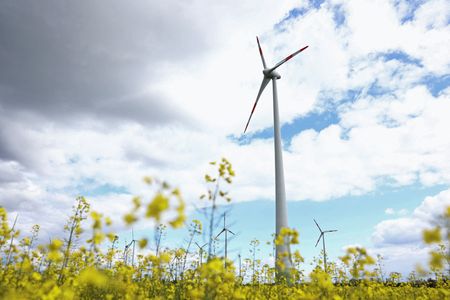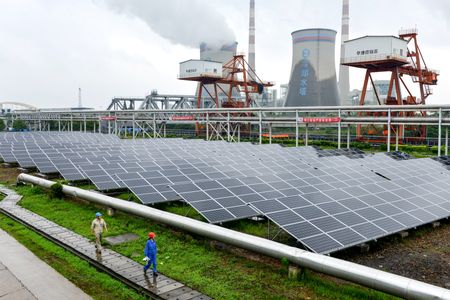FRANKFURT (Reuters) -Germany’s economy ministry published plans on Tuesday to diversify the sourcing of crucial components used mainly in offshore wind turbines by 2035 to reduce dependency on China.
The move is part of the government’s broader “de-risking” strategy amid geopolitical tensions with China, and after the energy crisis sparked by Russia’s war in Ukraine highlighted the dangers of over-reliance on one country for vital supplies.
Wind generation plants, especially out at sea, need powerful permanent magnets containing rare earths to optimise output and reduce maintenance, but their scarcity creates supply risks, the ministry said in a press release.
“Permanent magnets nearly all come from China, which also applies to the rare earths from which they are produced,” the ministry said, as it published a roadmap setting out alternative sourcing options, potentially including Australia and Japan.
“We want to systematically reduce critical dependencies, for example on rare earths, from individual third countries,” it added.
Germany wants to treble its offshore wind capacity to 30 gigawatts by 2030, in a sector that currently meets 5% of power demand, to help reduce carbon emissions produced when fossil fuels are used to generate electricity.
China provided 90% of permanent magnets, not just for wind but also electric cars, machine building and military industries, the ministry said, adding that it developed its roadmap with domestic and European partners’ wind industries.
It proposed building up new procurement channels to be able to derive 30% of the required permanent magnets by 2030, and 50% of supply by 2035, from alternative sources.
That would include investment guarantees tied to long-term delivery deals and new partnerships with countries such as Australia and Japan, it said.
(Reporting by Vera Eckert. Editing by Mark Potter)










